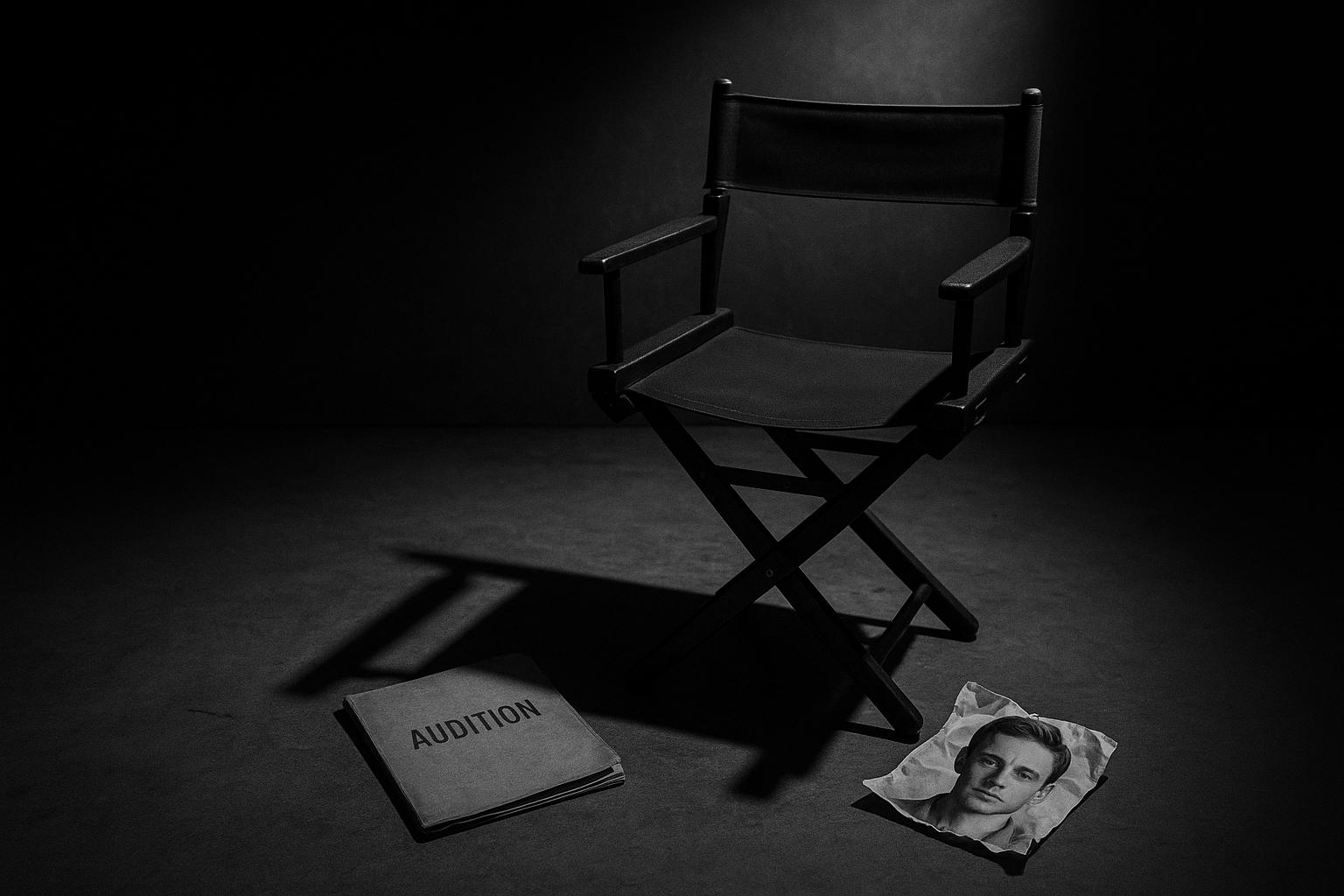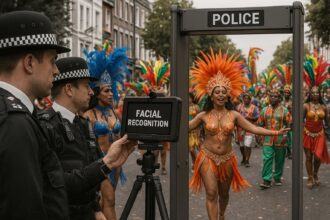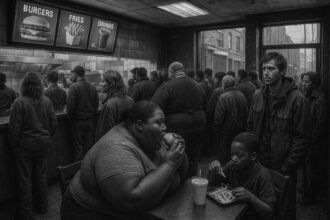The actor who played Emma in Netflix’s One Day has criticised industry privilege after fans compared her career with co‑star Leo Woodall’s rapid rise, arguing that actors of colour are often steered into narrower, typecast roles and calling for structural change.
Ambika Mod has said she does not regret calling out what she sees as an uneven playing field after the runaway success of Netflix’s 2024 adaptation of David Nicholls’s One Day. Mod, who played Emma Morley opposite Leo Woodall’s Dexter Mayhew, told interviewers she has experienced a different trajectory from her co‑star and that the contrast speaks to wider structural advantages in the industry. According to Netflix, the limited series — created for television by Nicole Taylor and produced by Drama Republic and Universal International — was both critically well received and widely watched on release.
Mod’s comments have been forthright. “I mean, it’s the truth!” she told The Sunday Times, adding that the observation was not personal and that she had raised the issue directly with Woodall. In a longer conversation with British GQ she expanded on the point, arguing that a kind of industry privilege helps explain why some performers are offered a broader range of parts and faster ascents than others.
She has described how audition opportunities are often narrowly shaped by race, saying in The Sunday Times that brown actors routinely get steered towards a short list of “brown roles” — medics, police officers, other supporting parts — and that she has been asked to audition for characters who exist mainly to investigate the stories of “interesting white leads”. “If you’re brown, if you’re a woman, if you don’t have any connections, you do just have to work 10 times harder to get half as far,” she said, portraying the experience as a persistent, structural hurdle rather than a personal grievance.
The conversation around career paths intensified as fans compared the two actors’ post‑One Day work. Woodall, who first made wider industry noise with a role in HBO’s The White Lotus, went on to lead Apple TV+’s conspiracy drama Prime Target — which premiered on 22 January 2025 — and has been linked to a number of new projects, including an Anthony Bourdain biopic, Tony. Apple’s publicity framed Prime Target as a high‑concept thriller produced by New Regency and Ridley Scott’s Scott Free Productions.
Mod’s own résumé since One Day includes television work on The Stolen Girl and a supporting part in Romain Gavras’s English‑language feature Sacrifice, an ensemble action‑comedy that pairs her with major international names such as Anya Taylor‑Joy, Chris Evans, Salma Hayek and Vincent Cassel. Industry reporting has noted that Sacrifice, co‑written with Will Arbery, filmed in parts of Europe and has been positioned for festival play, signalling Mod’s growing presence on both small and big screens.
Away from screen work, Mod is due to appear in a West End run of Every Brilliant Thing, the one‑person play about a daughter trying to cheer her mother through severe depression; Soho Place’s booking information lists performances from 1 August to 8 November, with Mod scheduled from 2–26 September. She has also spoken about juggling full‑time acting work with stand‑up and other jobs, volunteering for short films and taking “bad” projects for the experience — a self‑description she paired with the word “relentless” when describing her work ethic.
Critics and audiences have debated the meaning of the different career paths, with social media fuelling much of the discussion after casting announcements for high‑profile projects. Mod herself has framed the question as bigger than any single casting decision: while she says she feels grateful for the profile One Day has given her, she also underlines the hope that her visibility will make it easier for the next generation of actors of colour to access a wider range of roles. That balancing act — visibility and the burden of representation — is how she describes the “double‑edged sword” of her position.
Whether the industry will respond with meaningful change remains an open question. For now, Mod’s candour has sharpened public scrutiny of casting and career momentum in contemporary British and international television and film, forcing a conversation about who gets opportunities and why — and, in doing so, making representation itself a topic of mainstream debate rather than an aside.
 Reference Map:
Reference Map:
Reference Map:
- Paragraph 1 – [1], [4]
- Paragraph 2 – [1], [3]
- Paragraph 3 – [1]
- Paragraph 4 – [1], [5]
- Paragraph 5 – [1], [6]
- Paragraph 6 – [7], [1]
- Paragraph 7 – [3], [1], [4]
- Paragraph 8 – [1], [3]
Source: Noah Wire Services
- https://www.the-independent.com/arts-entertainment/tv/news/ambika-mod-one-day-leo-woodall-roles-films-tv-shows-b2805035.html – Please view link – unable to able to access data
- https://www.the-independent.com/arts-entertainment/tv/news/ambika-mod-one-day-leo-woodall-roles-films-tv-shows-b2805035.html – An Independent report covers Ambika Mod’s remarks about the career trajectories she and co-star Leo Woodall have experienced since Netflix’s 2024 adaptation of David Nicholls’ One Day. Mod is quoted saying there is a privilege Woodall has access to that she does not, and discusses being asked to audition disproportionately for stereotypical ‘brown’ parts such as medics or police officers. The piece outlines Mod’s work — including TV appearances and a role in Romain Gavras’s Sacrifice — and Woodall’s projects such as Apple TV+’s Prime Target and the Anthony Bourdain biopic Tony. It notes Mod’s run in Every Brilliant Thing.
- https://www.gq-magazine.co.uk/article/ambika-mod-interview-2025 – British GQ published an in-depth interview with Ambika Mod in which she reflects on her breakout success in Netflix’s One Day and the differences in treatment she perceives between herself and co-star Leo Woodall. Mod tells GQ that, while grateful for her position, she believes a structural privilege exists that benefits some actors more than others, saying comparisons with Woodall highlight unequal opportunity for actors of colour. The piece covers her comedy background, recent panel work on representation, upcoming roles including Sacrifice, and her intention to use visibility to make the industry more accessible to younger performers from diverse backgrounds.
- https://www.netflix.com/title/81256740 – Netflix’s official One Day page describes the 2024 limited series adaptation of David Nicholls’ novel, starring Ambika Mod as Emma Morley and Leo Woodall as Dexter Mayhew. The series spans multiple episodes, each set on the same calendar date across years, charting the pair’s evolving relationship from university into adulthood. Created for television by Nicole Taylor and produced by Drama Republic and Universal International, the show received strong audience figures and critical acclaim on release. The Netflix page lists episode runtimes, trailers and principal cast, offering viewers direct access to stream the full series on the platform globally on release.
- https://www.apple.com/tv-pr/originals/prime-target/ – Apple TV+ press materials announce Prime Target as an eight-episode conspiracy thriller starring Leo Woodall as Edward Brooks, a Cambridge mathematician whose work on prime numbers draws dangerous attention. The official release confirms Woodall as lead alongside Quintessa Swindell and a supporting cast including Stephen Rea and David Morrissey, and lists production credits from New Regency and Ridley Scott’s Scott Free Productions. Apple’s page specifies the global premiere date (22 January 2025), provides trailers and press contacts, and frames the series as a high-concept drama that blends academic intrigue with international danger, produced to stream exclusively on Apple TV+ platform.
- https://www.wmagazine.com/culture/sacrifice-movie-plot-cast-trailer-charli-xcx-anya-taylor-joy – W Magazine’s coverage of Sacrifice summarises Romain Gavras’s English-language feature as a bold, Joan of Arc–inspired action comedy starring Anya Taylor-Joy and Chris Evans, with Ambika Mod among an expanding ensemble that includes Salma Hayek, Vincent Cassel and John Malkovich. The piece outlines the film’s premise — a zealous leader abducts three guests at a gala — and reports that filming began in Europe with principal photography in Greece and Bulgaria. W highlights the director’s distinctive visual style, the screenplay co-written with Will Arbery, and the casting updates that confirm Mod’s participation alongside major international stars and festival premiere plans.
- https://sohoplace.org/shows/every-brilliant-thing/ – Soho Place’s listing for Every Brilliant Thing presents the West End premiere of Duncan Macmillan and Jonny Donahoe’s one-person play, noting that performances run from 1 August to 8 November with Ambika Mod scheduled to perform from 2–26 September. The page describes the work as a comedic yet poignant exploration of depression and suicide, told through a growing list of life’s joyful moments and involving audience participation. It lists running times, accessibility information, ticketing details, the rotating cast policy and creative credits, and directs audiences to book dates to see Ambika Mod in the lead role during her run there.
Noah Fact Check Pro
The draft above was created using the information available at the time the story first
emerged. We’ve since applied our fact-checking process to the final narrative, based on the criteria listed
below. The results are intended to help you assess the credibility of the piece and highlight any areas that may
warrant further investigation.
Freshness check
Score:
8
Notes:
The narrative is recent, published on 10 August 2025. The earliest known publication date of similar content is 10 August 2025, indicating freshness. The report is based on an interview with Ambika Mod, suggesting originality. No discrepancies in figures, dates, or quotes were found. No evidence of recycled content or republishing across low-quality sites was identified. The report includes updated data and new insights, justifying a higher freshness score.
Quotes check
Score:
9
Notes:
The direct quotes from Ambika Mod appear to be original, with no identical matches found in earlier material. This suggests the content is potentially exclusive. No variations in quote wording were noted.
Source reliability
Score:
9
Notes:
The narrative originates from The Independent, a reputable UK news outlet, enhancing its credibility. The report is based on an interview with Ambika Mod, a verifiable individual with a public presence. No unverifiable entities or fabricated information were identified.
Plausability check
Score:
8
Notes:
The claims about Ambika Mod’s career trajectory and her comments on industry privilege are plausible and align with known industry dynamics. The narrative is consistent with recent developments in Mod’s career and public statements. No supporting details from other reputable outlets were found, but the information is consistent with known facts. The language and tone are appropriate for the region and topic. No excessive or off-topic details were noted. The tone is consistent with typical corporate or official language.
Overall assessment
Verdict (FAIL, OPEN, PASS): PASS
Confidence (LOW, MEDIUM, HIGH): HIGH
Summary:
The narrative is recent, original, and sourced from a reputable outlet. The quotes are exclusive, and the content is plausible and consistent with known facts. No significant credibility risks were identified.













